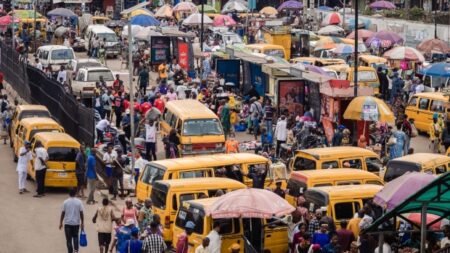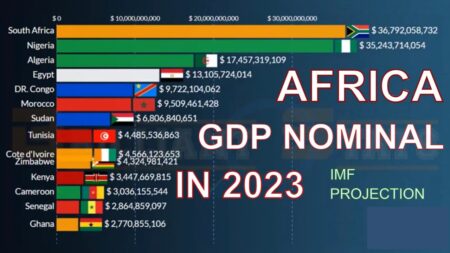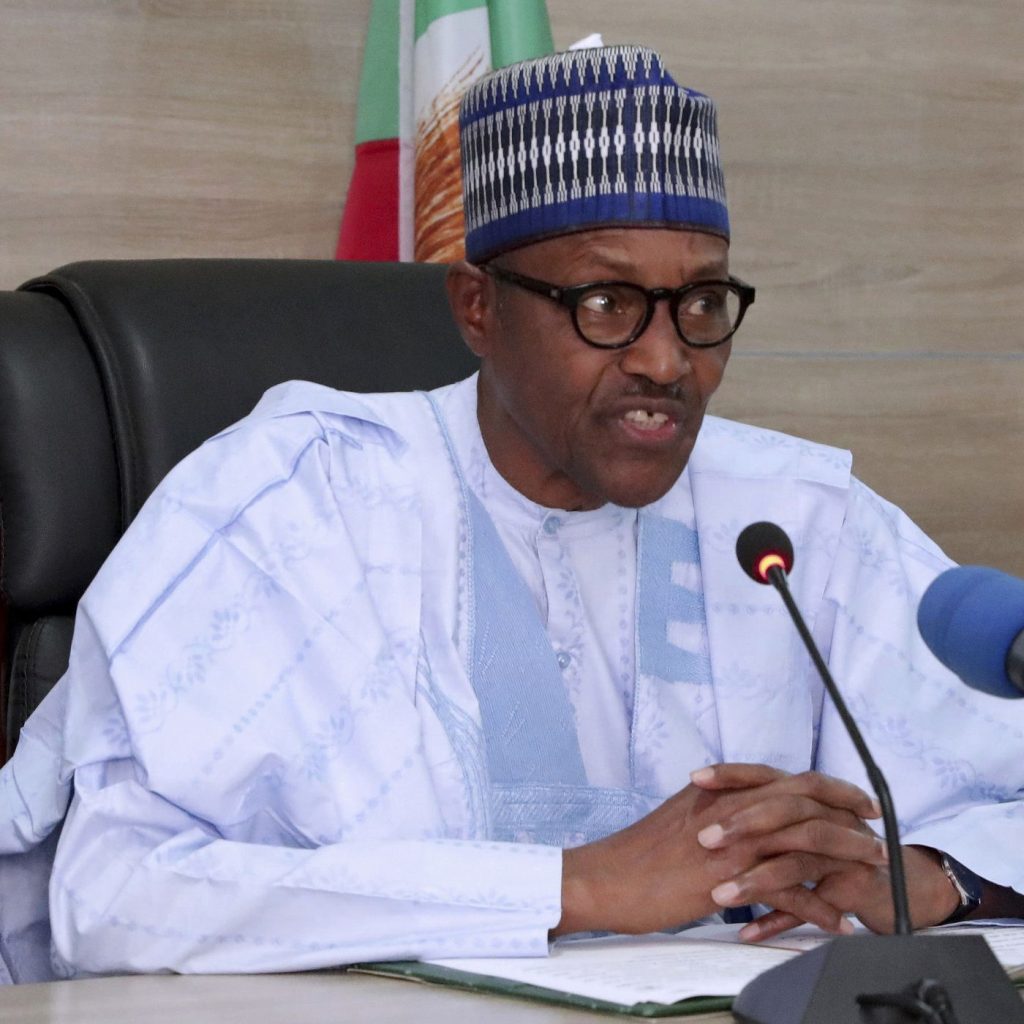- Africa’s new dawn: the rising role of digital and AI in agriculture
- Can Dangote Refinery Transform Africa Energy Ambition
- Gallup Survey: 80 per cent of Kenyan Workers Are Disengaged and Seek New Opportunities
- Madagascar Man Freed from 5KG Tumor After 15-Year Struggle
- How women in Africa are perceived and treated
- Sugar consumption in Kenya to Increase to 1.23 Million Tonnes
- Can Somalia and Turkey Oil deal Bring Change in Somaliland
- Remittances to Kenya dropped to $371.6 million in June, marking a six month low
Browsing: Nigeria’s economy
- Nigeria’s cost of living crisis has been the worst in decades, exacerbated by worsening food insecurity and record inflation.
- The lack of enough resources has led to insecurity in Nigeria as people fight for scarce resources and food.
- In response to Nigeria’s cost of living crisis, Tinubu announced a state of emergency in July and intends to begin grain distribution in the coming weeks.
Tinubu’s Reforms worsen Nigeria’s cost of living crisis
Nigeria, Africa’s largest economy, is grappling with the worst cost of living crisis in decades and a worsening food security situation. A significant portion of the population is experiencing extreme food insecurity. After assuming power in May 2023, Bola Tinubu’s administration adopted bold but unpopular reforms that further strained the already-battered economy.
Nigeria imports food and fuel and was buffeted by rising commodity prices due to a glim global economic situation in the last two years. President Tinubu …
In his inaugural address on May 29, President Bola Tinubu stated his plans to revive Nigeria’s ailing economy. After being sworn in as Nigeria’s 16th President, Tinubu expressed his immediate objective to achieve higher GDP of not less than 6 per cent annually and a significant reduction in the unemployment rate.…
Most African economies have been staring into an economic abyss, besieged by a plethora of daunting challenges that have left many teetering on the edge of a precipice. A glance into Africa’s economic crystal ball for 2023 depicts a mixed bag of fortunes, with some economies set to flourish like a green bay tree, some will find themselves staring down the barrel of a recession whilst others will remain in the doldrums.
According to the International Monetary Fund (IMF), economic growth in Sub-Saharan Africa is expected to reach 3.7 percent in 2023. Slowing global growth, higher external borrowing costs and weaker domestic currencies, are now the dominant factors weighing on Africa’s economies next year. In reiteration, the Economist Intelligence Unit (EIU) predicts that African economies will face turbulent times in 2023, as a range of internal and external shocks undermine growth prospects and threaten stability, but most of countries will …
-
According to the United Nations Environment Programme (UNEP), the continent holds 30 per cent of the world’s mineral reserves
-
Despite being endowed with these resources, the continent still lags in development partly due to colonisation and corruption
-
By 2050, the African economy is expected to reach a Gross Domestic Product (GDP) of US$29, driven by agricultural, trade, and natural resources investments
-
Nigeria has the largest economy in Africa, followed by South Africa and Egypt
“The continent has 40 per cent of the world’s gold and up to 90 per cent of its chromium and platinum. The world’s largest reserves
Dangote Cement Plc is set to raise its production capacity by more than a third.
This follows the surge in demand as Nigerian economy recovers.
According to Dangote Group’s Executive Director Edwin Devakumar, the largest cement producer will expand its capacity from about 50,000 tons in a day at the beginning of the year, to 70,000 tons in a day at the end of the year.
Speaking in a phone interview with Bloomberg, Devakumar noted that the company already begun the reactivation of idle capacity at its Gboko plant, in Benue State in the past seven months.
He further noted that this was due to a 40 per cent increase in demand in Nigeria.
Several African countries have been suffering from poor economy that was occasioned by the outbreak of Covid-19 pandemic.
Just recently, the International Monetary Fund increased its projection for the Nigeria’s 2021 economic growth to 2.5% from …
The coronavirus disease of 2019 (COVID-19) pandemic gripped the world with shock and overwhelmed the health care systems of most nations. The World Health Organization (WHO) declared the novel human coronavirus disease (COVID-19) outbreak, which began in Wuhan, China on December 8, 2019, a Public Health Emergency of International Concern (PHEIC) on January 30, 2020, with over seven million cases globally as of June 7, 20201.
In July 2020, over 663,000 confirmed Covid-19 cases were recorded in Africa with more than 343,000 recoveries and 14,000 deaths. 324,211 cases were recorded in South Africa with 4,699 deaths, followed by 34,854 confirmed cases in Nigeria and 769 deaths, 26,125 confirmed cases and 139 deaths in Ghana. Countries currently with the lowest cases in the region are Gambia, Seychelles and Eritrea. Southern Africa is the most affected area across the continent in terms of positive Covid-19 cases and Northern Africa closely …
The World Bank, in 2020, announced that the Nigerian economic may see a dip into recession, the worst the African country has seen in 40 years. This was largely due to the effects of the fall in the global price of oil, a commodity the nation‘s economy is heavily reliant on, and the outbreak of the COVID-19 pandemic, that nearly crippled not just Nigeria’s, but the global economy.
But these challenges were not the only catalysts for Nigeria’s imminent recession, issues around insecurity, infrastructural deficit, trade barriers, and power supply challenges all form a crude mix that has managed to drive the country down this very path.
Since the election of the Buhari’s administration in 2015, a lot more focus has been placed on driving local content and boosting local production, particularly in the agriculture sector. This was also in line to make the Nigerian economy …
The Finance Bill, that became law as of February 1, 2020, among other things, increased the Value Added Tax (VAT) rate from 5% to 7.5%. The additional revenue is intended to fund healthcare, education and infrastructure. To mitigate the impact of the VAT rate increase, the Government expanded the list of VAT-exempt items to include staples such as bread,cereals, all kinds of fish, flour and starch meals;fruits, nuts, pulses and vegetables,root vegetables, meat and poultry products,milk,salt and herbs, and natural water and table water.
The Bill is also not intended to be a ‘one-off’ document as the government intends to amend the Finance Act annually along with each appropriation Bill; as a way to ensure that there exists a more integrated fiscal structure in governance, and more efficient planning.
The key changes in the statute lean towards the Federal Government’s stance that the ‘common man’ was considered in the development …
The Finance Bill, among other things, proposed an increase in the Value Added Tax (VAT) rate from 5 per cent to 7.5 per cent. The additional revenue from the increase in VAT rate would be used to fund healthcare, education and infrastructure. The Government intends to mitigate the impact of the VAT rate increase by introducing a VAT exemption threshold for businesses with a turnover of less than N25 million per annum, and expanding the list of VAT-exempt items to include the following:
- Brown and white bread;
- cereals including maize, rice, wheat, millet, barley and sorghum;
- fish of all kinds;
- flour and starch meals;
- fruits, nuts, pulses and vegetables of various kinds;
- roots such as yam, cocoyam, sweet and Irish potatoes;
- meat and poultry products including eggs;
- milk;
- salt and herbs of various kinds; and
- natural water and table water.
The Bill was signed into law by the President, Muhammadu …










